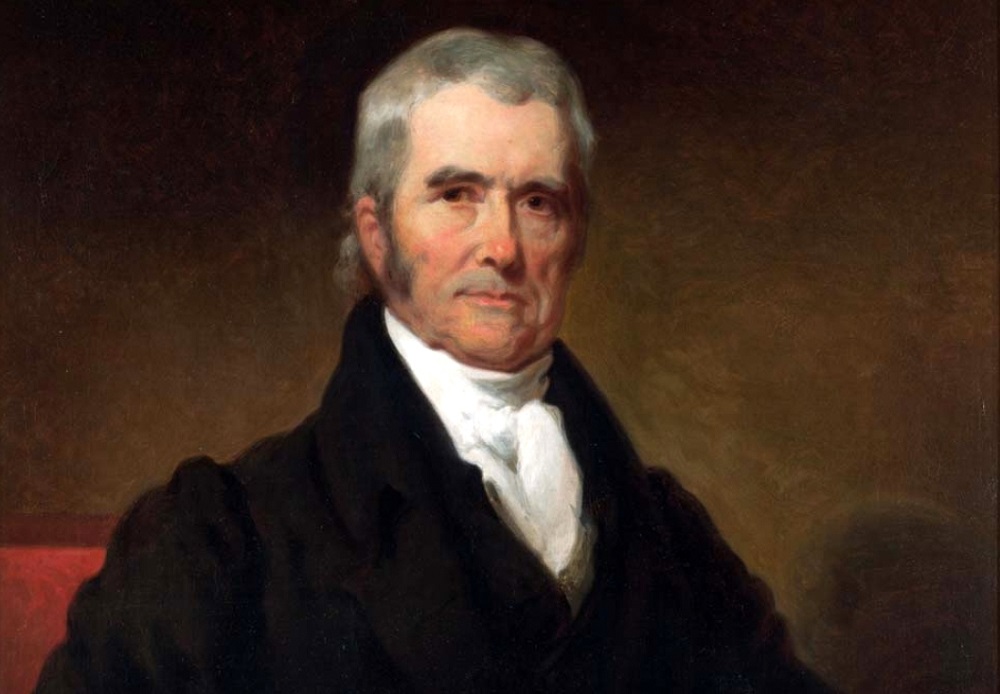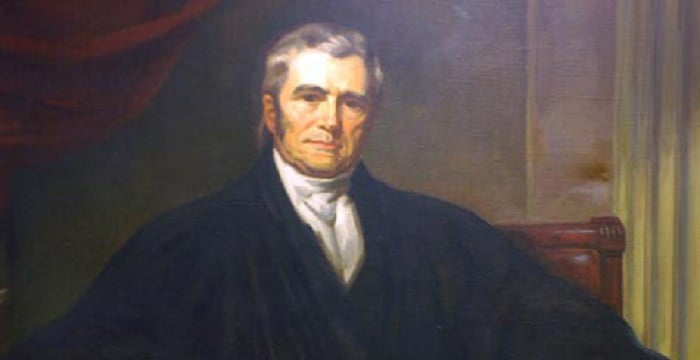
67) nor did he envision broad judicial supervision of society. Marshall never made any claim to judicial supremacy in expounding the Constitution or to exclusive guardianship of the fundamental law (p. Indeed, Hobson maintains that Marshalls concept of judicial review was both narrow and defensive in nature, designed to safeguard the independence of the courts and to protect the frail national union from aggressive moves by the states. 49) to avoid a political confrontation with the executive branch. Not only was Marshall simply affirming a widely shared belief, but Marbury can best be seen as a strategic retreat by the judiciary (p. As Hobson points out, however, by that time the idea that courts could void laws contravening the Constitution was no longer seriously controverted (p. Marshall has long been linked with the assertion of judicial review in Marbury v. He emphasizes that Marshalls genius lay not in innovative theorizing but in effectively articulating legal principles emanating from the formation of the American Republic. Hobson in The Great Chief Justice: John Marshall and the Rule of Law proceeds to dispel a number of stubborn myths that cloud our understanding of Marshalls tenure as chief justice. Relying primarily on Marshalls judicial opinions, Charles F. Both are sensitive to the interplay between legal developments and the political currents of the age. Smith has provided a well-balanced biography of Marshall, looking at the many facets of his long career. Hobson has written an acute analysis of Marshalls jurisprudence and craft of judging. To complicate matters, Marshalls constitutional philosophy has too often been viewed in a simplistic manner designed to validate twentieth-century notions of judicial review and enlarged governmental authority.Īgainst this backdrop, the volumes under review represent welcome and thoughtful additions to the Marshall literature. Boston: Houghton Mifflin, 1916≡9) is marred by both inaccuracies and undue partisanship. Beveridge ( The Life of John Marshall, 4 vols. New York: Macmillan, 1988), Marshall has remained a surprisingly elusive subject for historians.


Edward White, The Marshall Court and Cultural Change, 1815≣5. Columbia, S.C.: University of South Carolina Press, 1997, and G. Johnson, The Chief Justiceship of John Marshall, 1801≡835. Yet, despite numerous studies (see, for instance, Herbert A. Marshall contributed significantly to constitutional law and cemented the institutional role of the Supreme Court as a coequal branch of government.

Scholars have long agreed that John Marshall occupies a preeminent place in the growth of American constitutionalism.


 0 kommentar(er)
0 kommentar(er)
